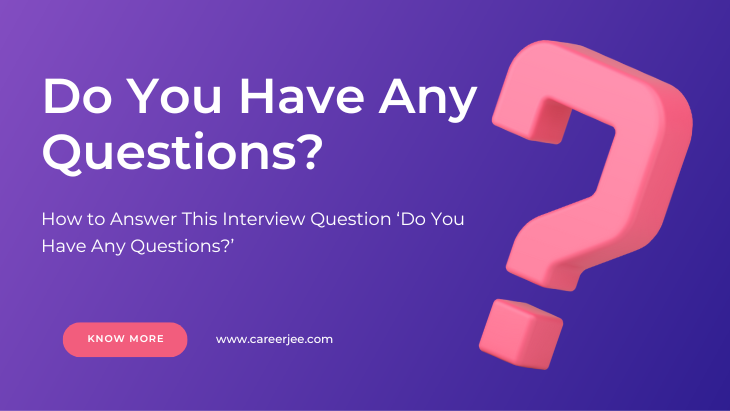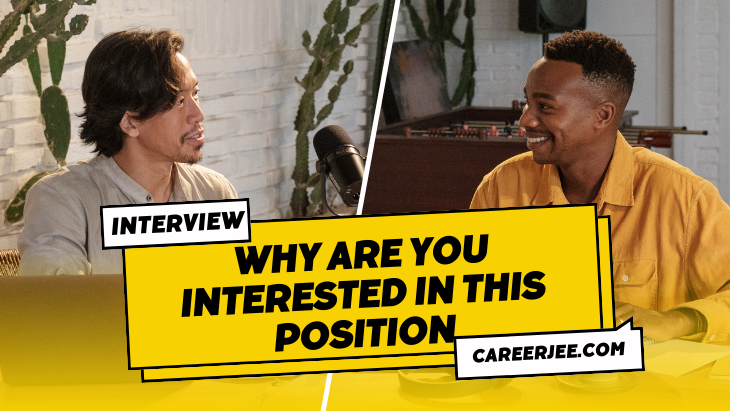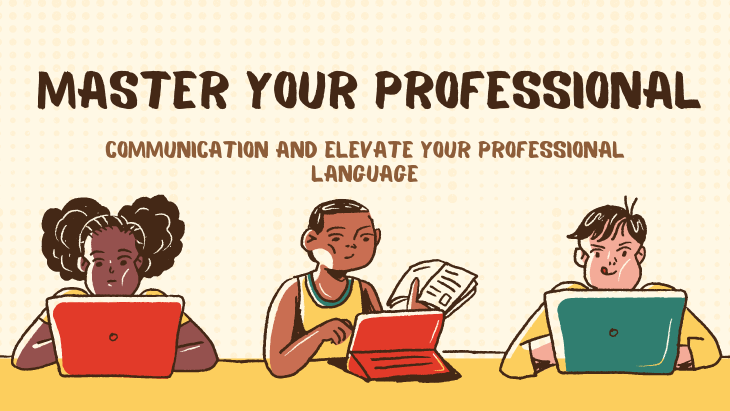you’re in an interview, answering question after question, when suddenly the interviewer turns the tables and asks, “Do you have any questions?” Instead of drawing a blank, being prepared with insightful questions sets you apart. But here’s the catch: not all questions are created equal. Asking the right ones showcases your professionalism and genuine interest. So, what questions truly matter in this unique exchange? Let’s navigate the path to securing your dream job by asking the questions that count.
Why Do The Interviewers Ask This Interview Question ‘Do you have any questions?’
- This question allows the interviewer to gauge your level of interest in the role and company and assess your preparedness for the interview.
- It provides an opportunity for you to clarify any uncertainties about the role, company culture, or expectations.
What Are The Challenges People Face While Answering This Interview Question?
- Candidates may not have prepared questions in advance and may struggle to come up with meaningful questions on the spot.
- Some candidates may be hesitant to ask questions for fear of appearing unprepared or disinterested.
- It can be challenging to strike the right balance between asking insightful questions and avoiding questions that have already been addressed during the interview.
What Should Be Focused When Answering This Interview Question?
- Prepare a list of thoughtful questions in advance that demonstrate your genuine interest in the role and company.
- Ask questions that show you’ve done your research and are genuinely curious about the company’s culture, values, and future plans.
- Use this opportunity to gather information that will help you assess whether the role is a good fit for you and to clarify any concerns or uncertainties you may have.
What Should Be Avoided When Answering This Interview Question?
- Avoid asking questions that can be easily answered by researching the company’s website or other publicly available sources.
- Try not to ask overly generic questions that don’t demonstrate your specific interest in the role or company.
- Be mindful of the interviewer’s time and avoid asking too many questions or asking questions that are too lengthy or complex.
Sample Answers:
“I’m curious about the company’s approach to professional development and opportunities for growth within the organization. Can you tell me more about the company’s training programs and support for employees’ career advancement?”
“I’m interested in learning more about the team dynamic and how collaboration is encouraged within the company. Can you share some examples of how teams typically work together on projects and how decisions are made collaboratively?”
“I’d like to know more about the company’s long-term goals and vision for the future. How does the company plan to stay competitive in the industry, and what are some upcoming initiatives or projects that employees will be involved in?”
“I’m curious about the company’s stance on diversity, equity, and inclusion, and how those values are reflected in its hiring practices and company culture. Can you tell me more about the company’s efforts to promote diversity and ensure an inclusive work environment?”
As Freshers Candidates What Kind of Questions Can Be Asked?
- Can you tell me more about the day-to-day responsibilities of this role?
- How does the company support employee learning and development?
- Can you share some examples of recent projects or initiatives the team has worked on?
- What opportunities are there for mentorship or guidance for someone in this role?
- How does the company measure success or performance in this role?
As Experienced Candidates What Kind of Questions Can Be Asked?
- What are the main challenges or opportunities facing the team or department right now?
- Can you provide more insight into the company’s strategic priorities and how this role contributes to achieving them?
- How does the company foster innovation and creativity among its employees?
- Can you share some examples of how this role has evolved or changed over time?
- What qualities or attributes are you looking for in the ideal candidate for this role?
Q&A
1: Is it important to ask questions during the interview? A: Yes, asking questions during the interview demonstrates your interest in the role and company and allows you to gather valuable information to help you assess whether the job is the right fit for you. It also shows that you’ve done your research and are genuinely curious about the company’s culture, values, and future plans.
2: What should I consider when preparing questions to ask during the interview? When preparing questions, consider what information would be most valuable to you in making a decision about whether to accept a job offer. Focus on questions that demonstrate your interest in the role and company and that help you assess whether the company’s culture, values, and expectations align with your own.
3: How many questions should I ask during the interview? It’s generally a good idea to have a few questions prepared in advance to ask during the interview, but you don’t need to ask a long list of questions. Aim for quality over quantity and focus on asking thoughtful, insightful questions that demonstrate your genuine interest in the role and company.
4: What if I don’t have any questions to ask during the interview? If you’ve done thorough research on the company and the role and genuinely can’t think of any questions to ask, it’s okay to say so. However, asking questions during the interview is generally seen as a positive sign of your interest and engagement, so it’s a good idea to have at least a couple of questions prepared in advance.
5: Can I ask about salary, benefits, or other compensation-related questions during the interview? It’s generally best to wait until the offer stage to discuss salary, benefits, or other compensation-related questions. However, if the interviewer brings up these topics or invites you to ask about them, you can certainly do so respectfully and professionally. Just be mindful of the context and timing of these discussions during the interview process.


